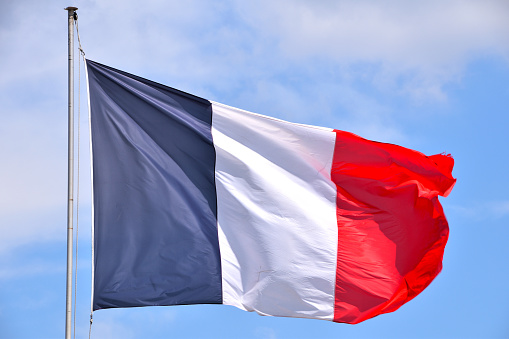Bamako – France’s announcement on Thursday that it will withdraw its military from Mali marks a profound shift in the balance of power in the Sahel.
Allied forces from European states and Canada are also set to pull out.
There are fears the withdrawal could create a security vacuum in the conflict-ridden region.
How will the fight against jihadists change?
France first intervened in Mali in 2013, and currently has about 5,000 troops deployed across the Sahel.
It is pulling out of Mali after a breakdown in relations with the country’s ruling military junta after a coup in 2020.
But Paris had already begun to scale back its deployment before relations nosedived. It closed three bases in northern Mali this year, where the bulk of its anti-jihadist Barkhane force had been stationed.
France is now set to close its remaining Malian bases within the next four to six months.
On Thursday, French President Emmanuel Macron announced that “the heart” of the anti-jihadist fight will shift to neighbouring Niger, and will involve a mix of European and African forces.
He explained that the plan will depend on the outcome of coming discussions with African governments, but that the idea is that European forces offer support, equipment and training to local troops.
How will Mali be affected?
The Sahel’s intractable jihadist conflict emerged in northern Mali in 2012, before spreading to the centre of the country and neighbouring Burkina Faso and Niger.
Violence now threatens to spill over into West African coastal states such as Ivory Coast and Benin.
Mali nonetheless remains the epicentre of the crisis, despite the longtime presence of foreign troops.
Mali’s interim Prime Minister Choguel Kokalla Maiga recently said that about 80 percent of the country is plagued by insecurity, for example.
The country’s poorly trained and equipped army now faces the ominous prospect of fighting al-Qaeda and Islamic State group militants alone – without critical French air support.
Malian researcher Boubacar Haidara said that French forces failed to eradicate jihadism, but had nonetheless acted as a “barrier”.
What about Mali’s neighbours?
France and its allies stated on Thursday that they were considering extending support to other West African states in order to contain “the potential geographical spread” of jihadist violence.
As with Mali, there are concerns about the capacity of fragile African states to quell the conflict.
Any new cooperation would depend on whether African governments request help, however.
Ivorian President Alassane Ouattara appears open to the possibility of increased aid.
Ouattara told French broadcasters on Wednesday: “We will be forced to strengthen our defence forces. We will be obliged to increase the protection of our borders, we will be obliged to buy weapons.”
Can Russia fill the void?
France’s dispute with Mali’s junta is over delayed elections after the coup, as well as its alleged hiring of paramilitaries from Russian private-security firm Wagner.
The shadowy organisation has long been suspected to be the Kremlin’s paramilitary arm, and its members have been accused of abuses in the Central African Republic.
Hundreds of Wagner fighters are allegedly present in Mali, according to the US and others.
However Mali’s junta has flatly denied the claim and says it maintains relations with the Russian government alone.
Timbuktu Institute think tank director Bakary Sambe told AFP that he doubts Wagner will solve Mali’s problems, should the firm’s presence in the country be confirmed.
He pointed to alleged abuses committed by the group, and separately, questioned the depth of Russia’s knowledge of West Africa.
Talks with jihadists?
Holding a dialogue with jihadist groups has long loomed over Malian politics, with many analysts viewing the option as one of the country’s few escape routes from its cycle of violence.
Malian leaders have backed the option, and the current ruling junta has also said it is open to the idea. But France fiercely opposed the move.
A French withdrawal now raises the prospect of talks again.
The Sahel’s largest jihadist alliance, the al-Qaeda-aligned GSIM group, previously said that it is open to talks – but only on condition of a French withdrawal.
Sambe, the think tank director, suggested that the junta may refrain from initiating a dialogue until it is in a strong negotiating position.
However, he also questioned how such talks would work, pointing out that there are myriad jihadist groups active in the Sahel, many of whose grievances are local.
Follow African Insider on Facebook, Twitter and Instagram
Source: AFP
Picture: Pexels
For more African news, visit Africaninsider.com


